Appeal Letter
-
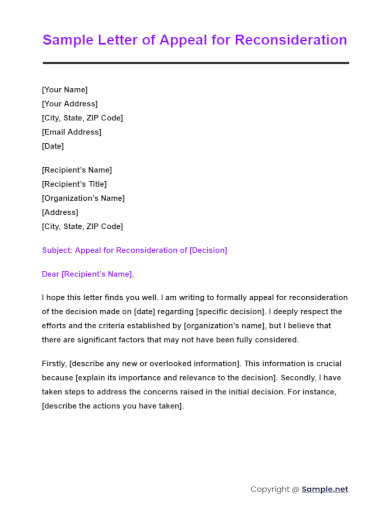
Sample Letter of Appeal for Reconsideration
download now -
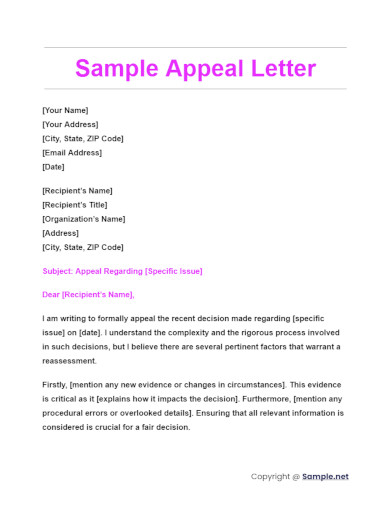
Sample Appeal Letter
download now -
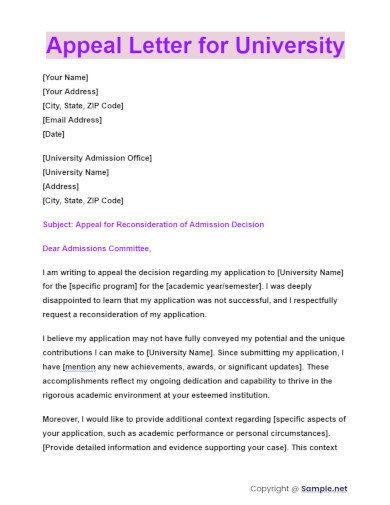
Appeal Letter for University
download now -
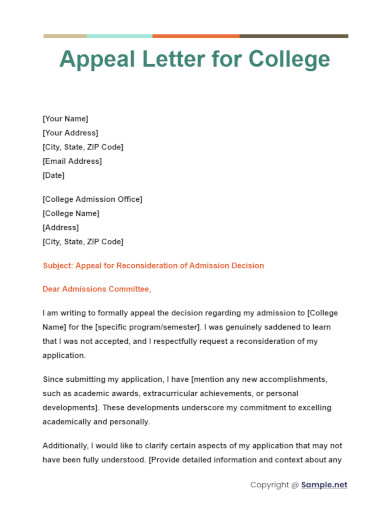
Appeal Letter for College
download now -
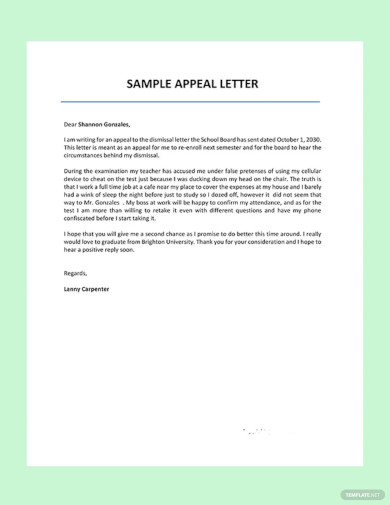
Sample Appeal Letter Template
download now -
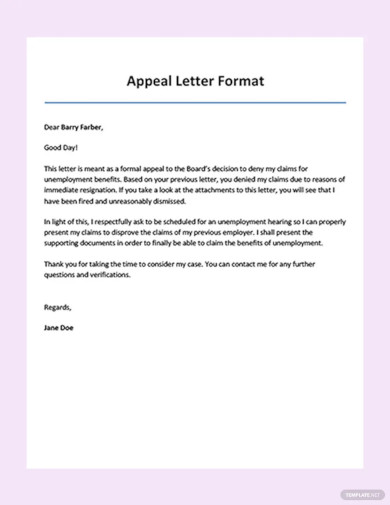
Appeal Letter Format Template
download now -
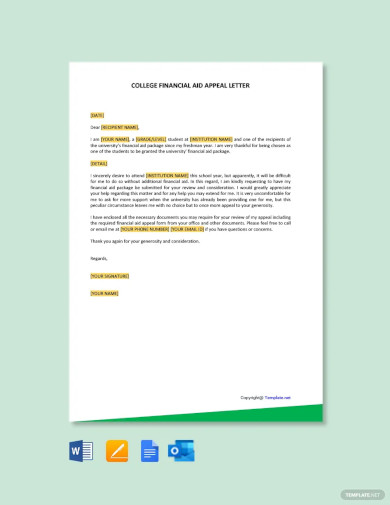
College Financial Aid Appeal Letter Template
download now -
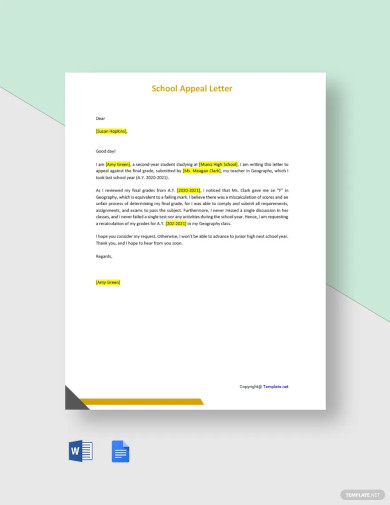
Sample School Appeal Letter Template
download now -
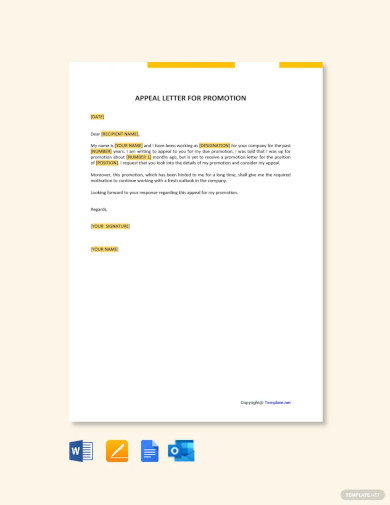
Appeal Letter For Promotion Template
download now -
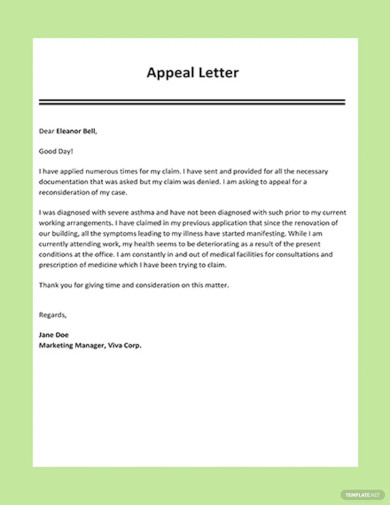
Appeal Letter Template
download now -
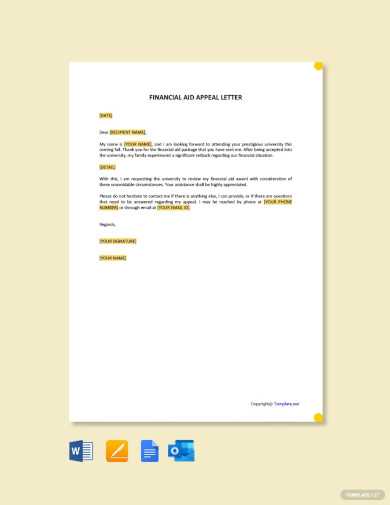
Financial Aid Appeal Letter Template
download now -
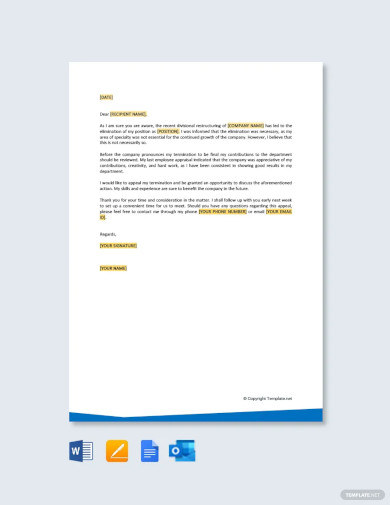
Free Appeal Letter for Termination of Employment Template
download now -
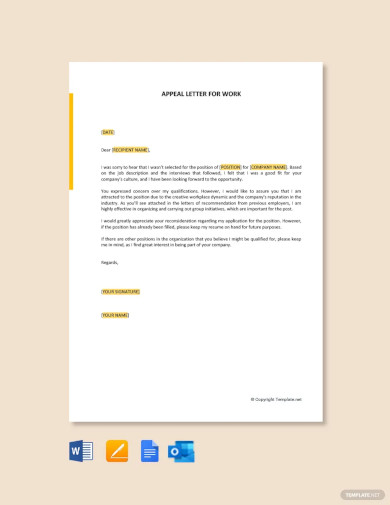
Free Appeal Letter for Work Template
download now -
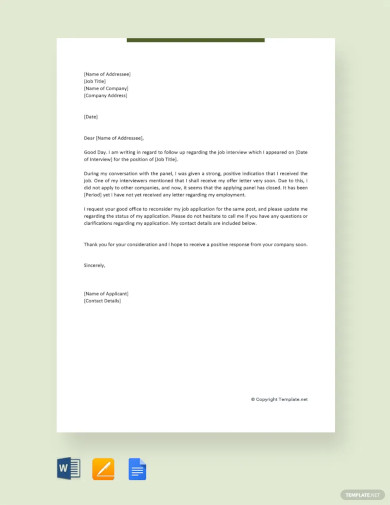
Free Appeal Letter For Job Rejection Template
download now -
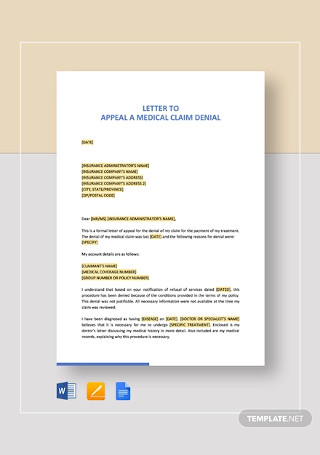
Letter to Appeal a Medical Claim Denial Template
download now -

Letter to Appeal a Medical Claim Denial Template
download now -

Sample Appeal Letter
download now -
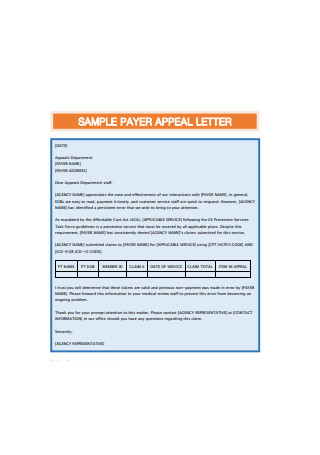
Sample School Appeal Letter
download now -
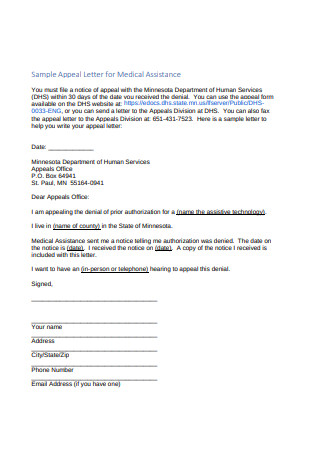
Sample Employment Appeal Letter
download now -
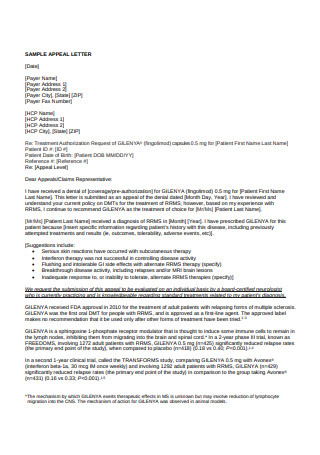
Sample Dismissal Appeal Letter Format
download now -
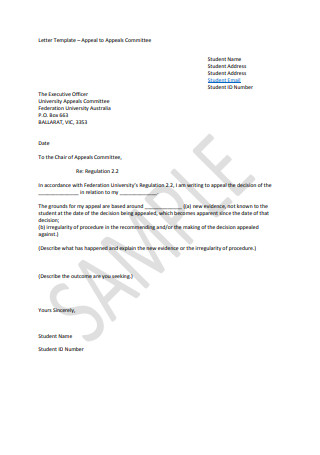
Appeal Letter Reconsideration Example
download now -
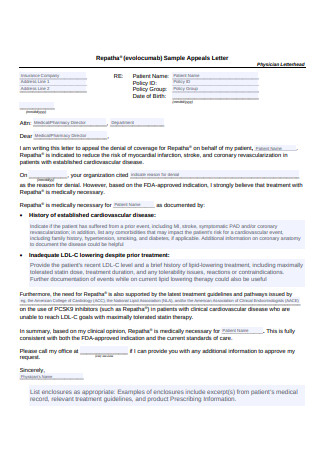
Appeal Letter Admission
download now -
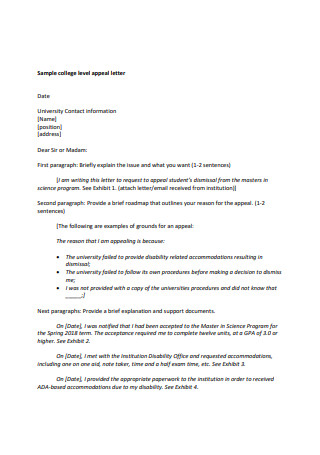
Sample Insurance appeal letter
download now -
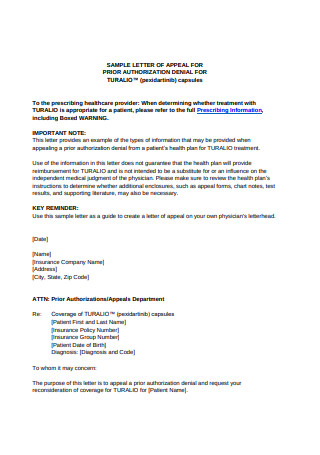
University Appeal Letter
download now -
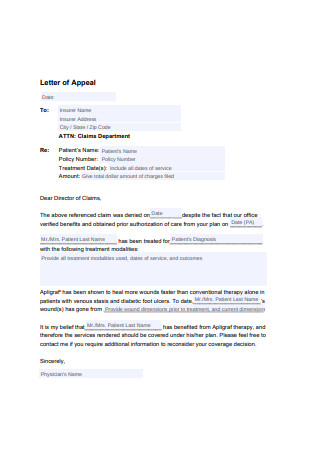
Letter of Appeal Termination
download now -
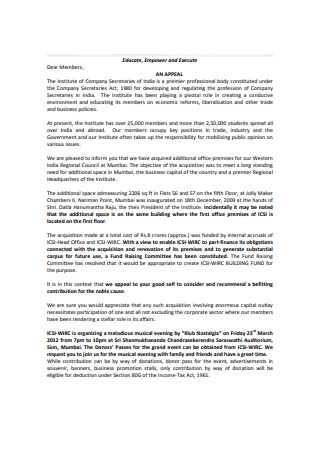
Disciplinary Appeal Letter
download now -
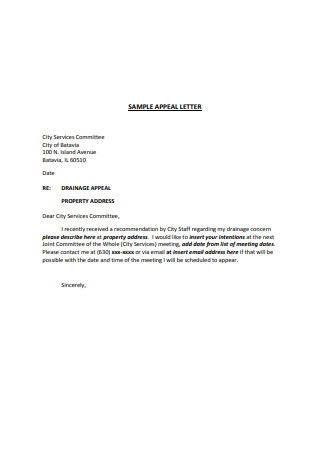
Sample Unfair Dismissal Appeal Letter
download now -
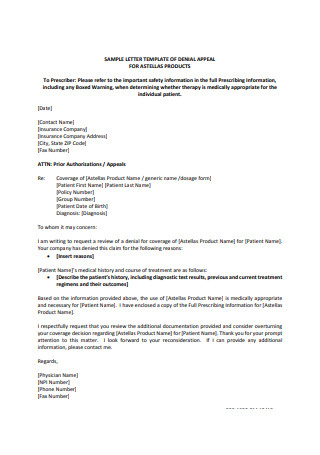
Appeal Letter Application
download now -
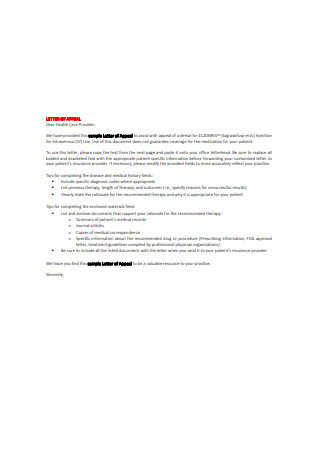
Consideration Letter of Appeal
download now -
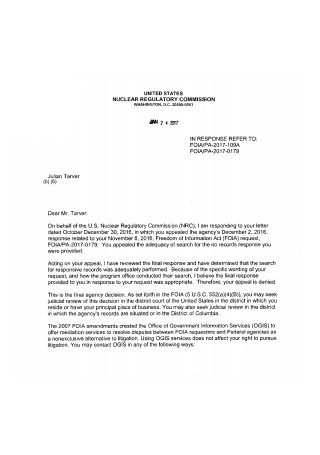
Appeal Readmission Response Letter
download now -
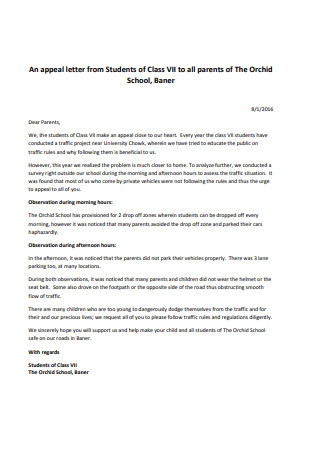
Appeal Letter Court from students
download now -

Unemployment Appeal Letter
download now -
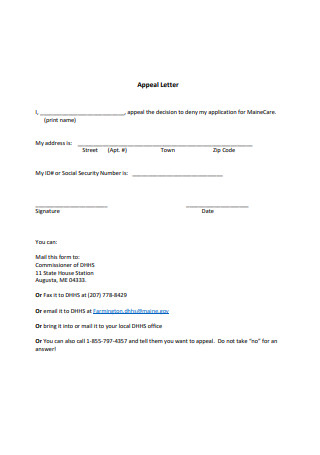
Appeal Letter Sample
download now -
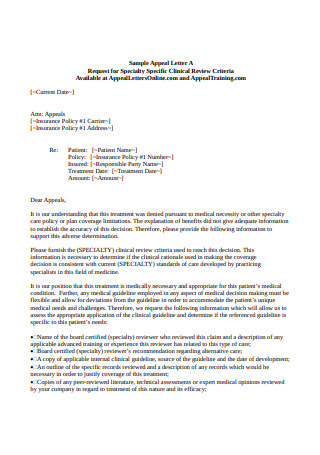
Basic Work Appeal Letter
download now -
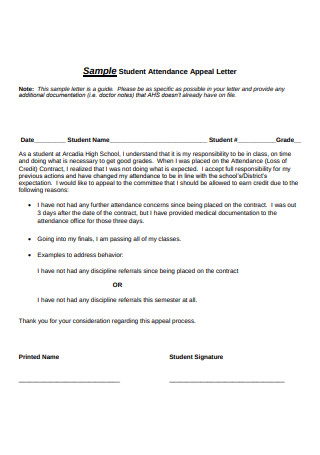
Student Attendance Appeal Letter
download now -
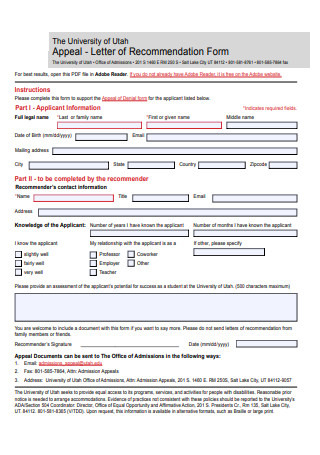
Appeal Letter of Recommendation Form
download now -
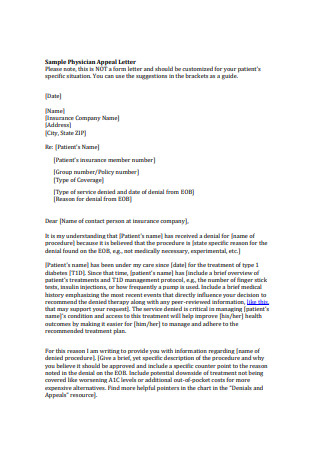
Sample Physician Appeal Letter
download now -
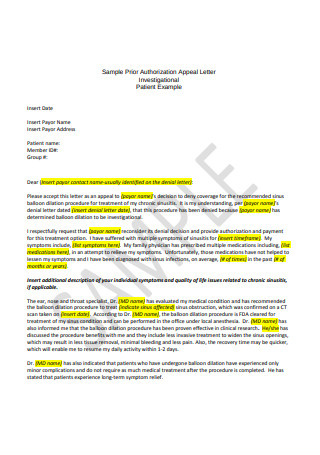
Sample Prior Authorization Appeal Letter
download now -
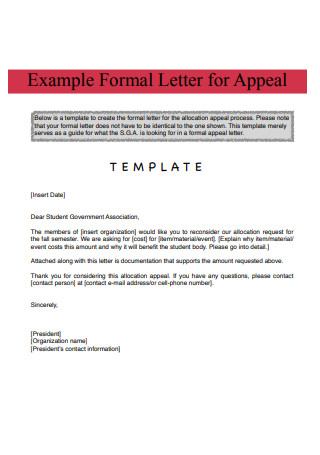
Formal Letter for Appeal
download now -
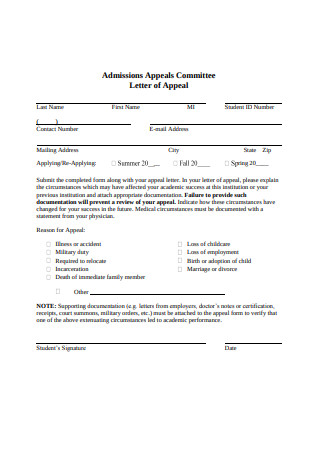
Sample Committee Letter of Appeal
download now -
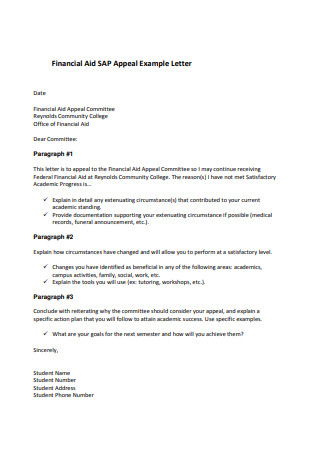
Financial Aid Appeal Letter
download now -
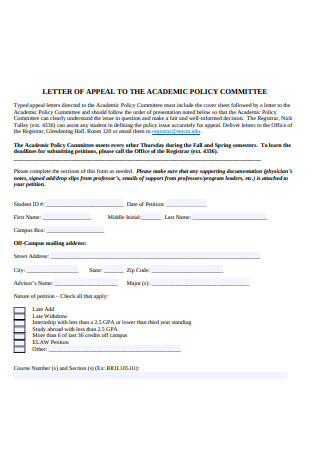
Letter of Appeal to the Academic Policy
download now -
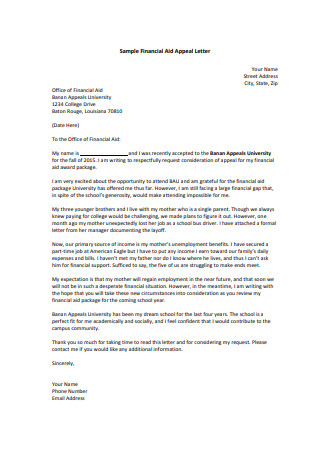
Sample Financial Aid Appeal Letter
download now -
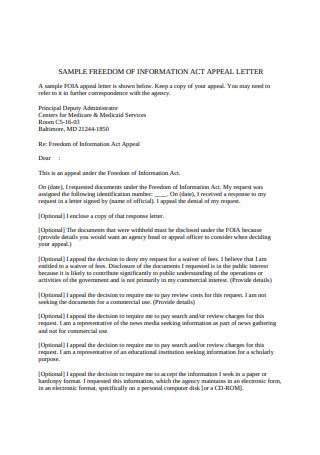
Basic Appeal Letter
download now -
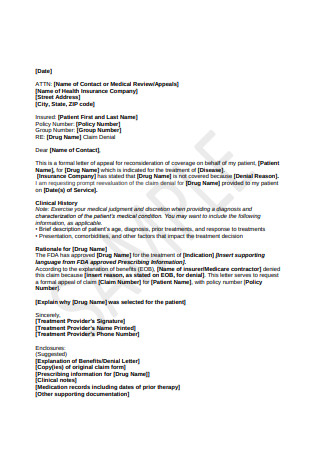
Formal Letter of Appeal
download now -
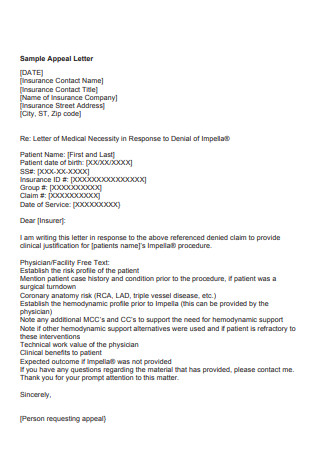
Appeal Letter Sample
download now -
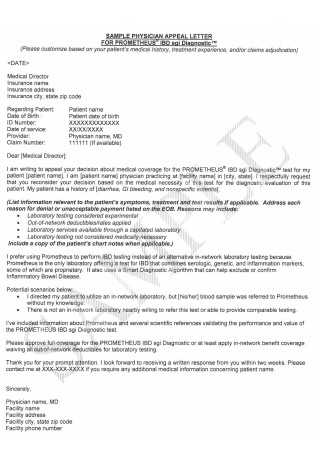
Sample Physician Appeal Letter
download now -
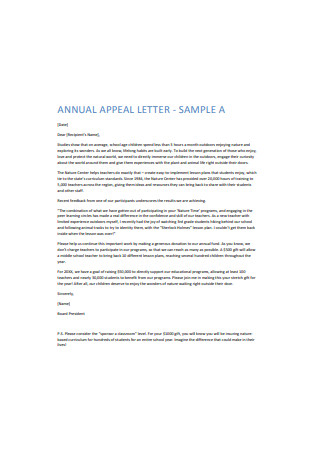
Annual Appeal Letter
download now -
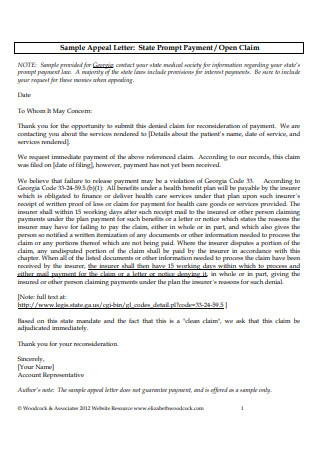
Standard Appeal Letter
download now -
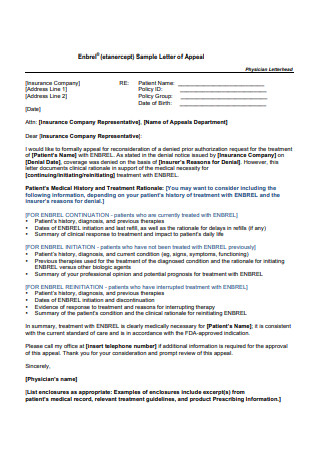
Sample FREE Letter of Appeal
download now -
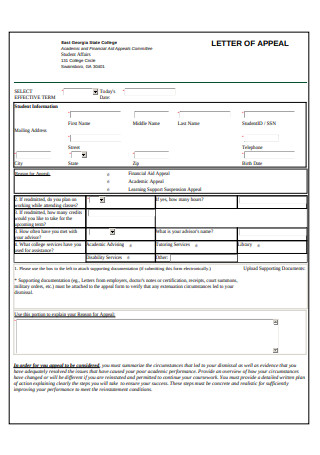
Letter of Appeal Form
download now -
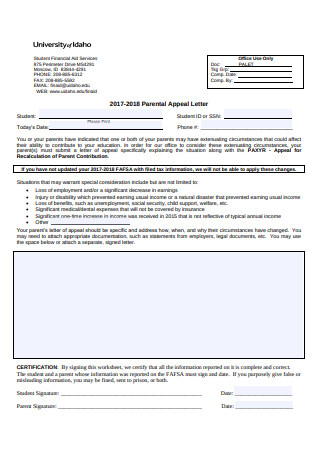
Parental Appeal Letter
download now -
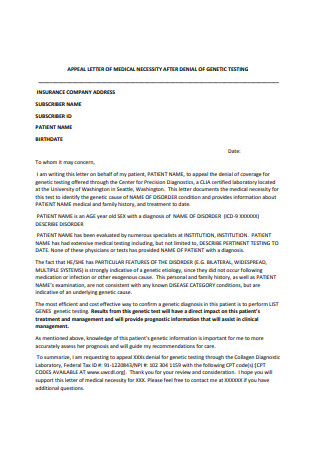
Medical Appeal Letter
download now -
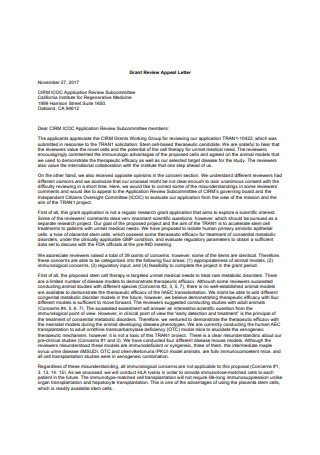
Grant Review Appeal Letter
download now -
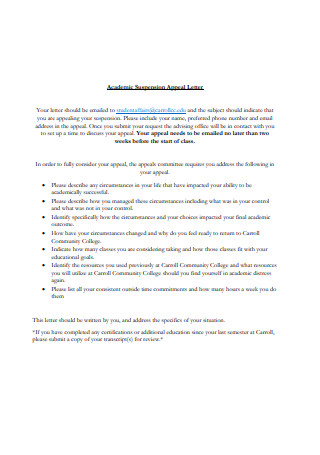
Academic Suspension Appeal Letter
download now -
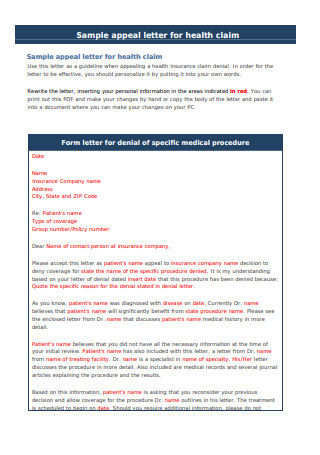
Sample Appeal Letter for Health Claim
download now -
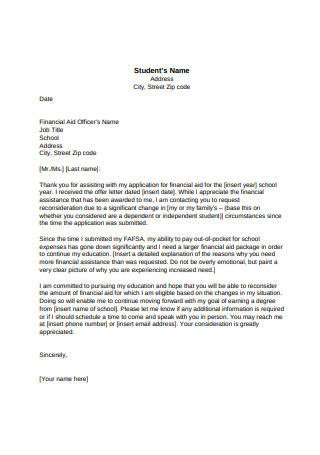
Financial Aid Appeal Letter Format
download now -
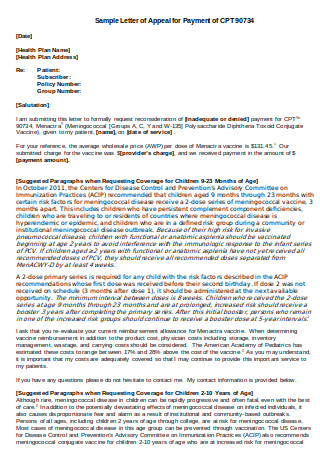
Sample Letter of Appeal for Payment
download now -
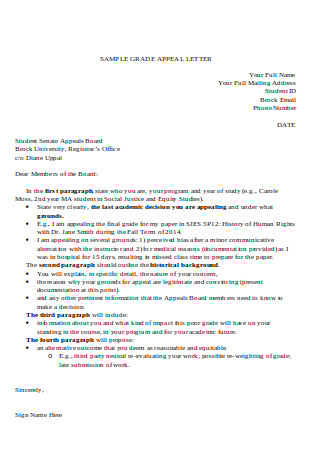
Sample Grade Appeal Letter
download now -
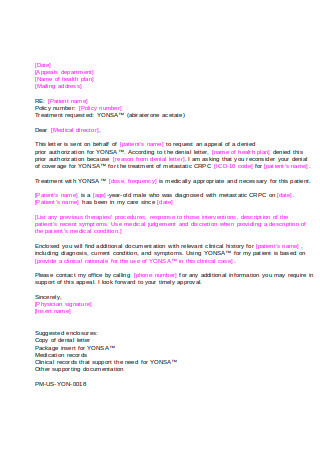
Printable Letter of Appeal
download now -
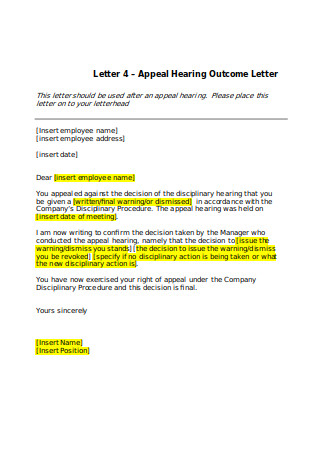
Appeal Hearing Outcome Letter
download now -
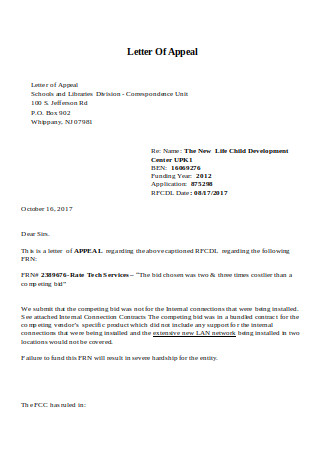
Letter of Appeal Sample
download now
FREE Appeal Letter s to Download
Appeal Letter Format
Appeal Letter
What Is an Appeal Letter?
When Can I Use an Appeal Letter?
What are the No-Nos of an Appeal Letter?
How to Write an Appeal Letter
How do you write a strong appeal letter?
What not to say in an appeal letter?
What are the 3 types of appeal in writing?
How do you write a humble request letter?
How do I write a letter of appeal for a denied claim?
How do you argue an appeal?
What is a good reason for an appeal?
How long should a letter of appeal be?
What is the most common appeal?
What does it mean to apply for an appeal?
How likely are appeals successful?
Is it hard to win an appeal?
Are appeals usually successful?
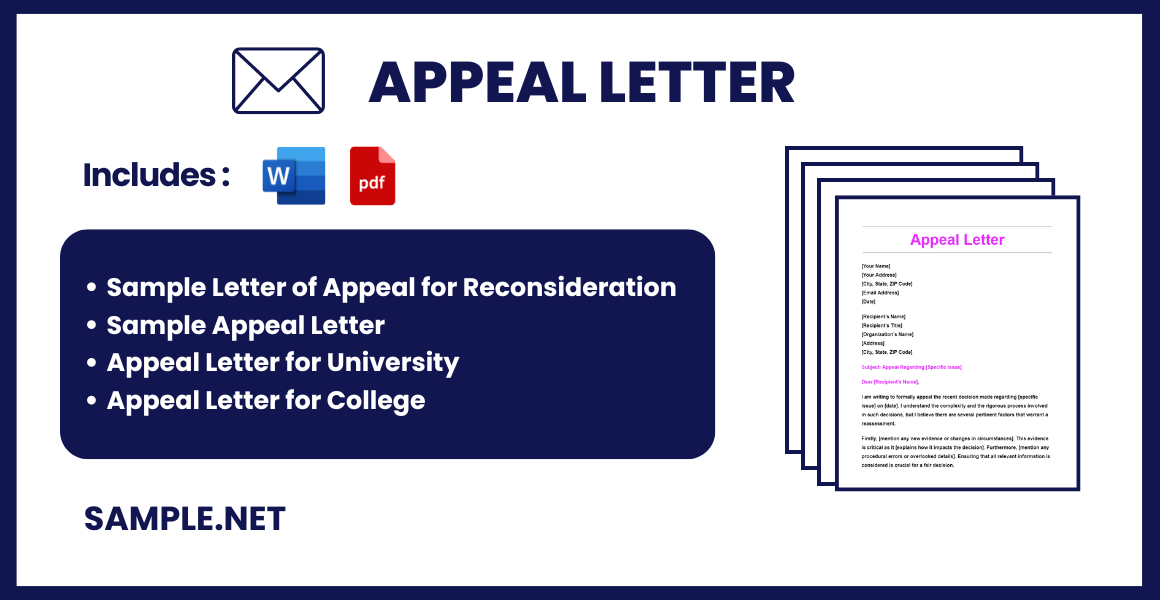
Appeal Letter Format
[Your Name]
[Your Address]
[City, State, ZIP Code]
[Email Address]
[Date]
[Recipient’s Name]
[Recipient’s Title]
[Organization’s Name]
[Address]
[City, State, ZIP Code]
Subject: Appeal for [Reason]
Dear [Recipient’s Name],
- Introduction:
- State the purpose of the letter.
- Mention the decision or action you are appealing against.
- Background:
- Provide context and details of the situation.
- Explain the circumstances leading to the appeal.
- Reason for Appeal:
- Present clear and concise reasons for the appeal.
- Include any supporting evidence or documents.
- Request for Action:
- Specify the action you are requesting.
- Mention any deadlines or urgent considerations.
- Conclusion:
- Express gratitude for considering your appeal.
- Offer to provide additional information if needed.
Sincerely,
[Your Name]
What Is an Appeal Letter?
An appeal letter is a formal written request to reconsider a decision. It typically outlines the reasons for the appeal, presents new evidence or arguments, and seeks a favorable outcome. This document is crucial in situations where the initial decision significantly impacts the individual’s circumstances, such as job termination, academic issues, or denied claims. By clearly stating the grounds for appeal and supporting them with evidence, an appeal letter aims to persuade the decision-maker to review and potentially overturn the original decision.
An appeal letter is a formal letter sent for the reconsideration of a decision. According to Dr. Mary Dowd of Chron, it’s an opportunity for you to challenge decisions that you believe legal bodies decided upon unjustly or discriminatorily. It’s a platform for you to present your facts to support your claim on why they should turn over their choice. It’s a formal way of telling your employers or other specific entities that they have made a wrong decision. It can also be a way for you to air your grievances, like a grievance letter, except it was for when the management made poor decisions against you. There is a multitude of ways that you can use an appeal letter. You can use it to counter a complaint filed against you, to protect yourself from dismissal, etc. You may also see Legal Letter
When Can I Use an Appeal Letter?
Nothing is etched in stone. For as long as there is a chance for you to revoke a decision, you can still try to appeal to their better nature. There are many ways that you can use an appeal letter to your advantage. In almost every circumstance, you can always try to commute the penalty or reverse the resolution. Let’s break down the ways that you can make an appeal letter work for you.
For employment matters, you may need to check the company policy regarding addressing grievances before sending a letter for reconsideration. These are only a few examples of when an appeal letter is applicable. The possibilities of using it are endless. For as long as the decision is not yet final and irrevocable, you still have a shot of turning the whole situation around.
What are the No-Nos of an Appeal Letter?
The reason why we write appeal letters is to try to persuade them to reverse a certain penalty. Sometimes, the situation causes us to succumb to using derogatory remarks against the person or group of people we are writing about. It’s okay to be upset about it. But incorporating that in your letter would only do the opposite effect of getting them to your side. Thus, we need to be conscious of the things that we include in an appeal letter. Here are some of the things that you should remember in writing an appeal letter:
Just like any good business letter, you can best get your message across by writing it as factually, objectively, and formally as possible. Remember that you are trying to get on their good side while maintaining professionalism in your letter.
How to Write an Appeal Letter
Being objective is a difficult thing to do, especially if you are involved in the conflict. It’s hard not to get too emotional if you are trying to fight for your employment or scholarship. However, the only way to resolve any issue would be to deal with it in a calm and collected manner. A good work letter looks best if written in a brief, concise, and factual manner. If you find it difficult to draft an appeal letter, you can download our templates and samples. Similarly, you can follow this step-by-step guide in writing an appeal letter. You may also see Excuse Letter
Step 1. State Your Reason for Writing the Letter
In writing your letter, the first thing you need to do is state why you are writing it. We reach out to the officers-in-charge so their decisions can be changed. Tell them directly what disciplinary action you are trying to commute. Don’t try to make it long as it would only give you a chance to fall into the trap of subjectivity. Be concise and direct to the point. You may also see Letter of Employment
Step 2. State Why They Should Reconsider You
Here’s where your knowledge of the employee handbook comes in handy. In the case of wrongful termination, try to state any rules that the management violated. Try to specify, if any, instances where they have mistreated you that eventually led to the said disciplinary action. State pieces of evidence that you have that would help strengthen your case or witnesses that would help corroborate your story. You may also see Letter Of Explanation
Step 3. Provide Evidence/Supporting Documents
Merely stating the facts would do little to help your case. It would be great if you can show proof or evidence that can support your claim. You can think of it like a court case. Any good lawyer does not rely on witness accounts only. They always back their claim with substantial evidence. In the same way, your case would get stronger if you can provide supporting documents such as timestamps, statistical data, performance metrics, etc. Just like writing a hardship letter, it would best help your case to attach supporting documents. You may also see Explanation Letter
Step 4. State Your Desired Outcome
We write an appeal letter to achieve a goal. State in your message what you would like to accomplish by writing it. For example, you’d like to retain your scholarship at a college or retain your employment at a company. Finalize your letter by never forgetting to say thank you. It’s a simple human courtesy that goes a long way. You may also see Claim Letter
Alexander Pope once said, “To err is human; to forgive, divine.” It is understandable for us, humans, to make mistakes. That’s the reason why there is a proper escalation to corrective actions so employers can give a chance to the employees or students to redeem themselves. However, to repeatedly make mistakes of the same nature without learning is another thing. So we should learn to tread carefully around the rules and regulations to make sure we don’t get penalized for our actions. But the management is not so unforgiving as to hand down a decision without hearing your side of the story. So while you still have that golden opportunity, take advantage of it and defend yourself to the extent of your capabilities. Who knows? Maybe you can even turn things around. You may also see Collaboration Letter
How do you write a strong appeal letter?
Writing a strong appeal letter is essential to effectively communicate your case and persuade the recipient. Follow these steps to ensure your appeal letter is impactful:
- State Your Purpose: Clearly state the purpose of your appeal. Explain the decision or action you are contesting and why.
- Present Facts and Evidence: Collect and present relevant documents to support your case. Organize the evidence logically and ensure all information is accurate.
- Explain the Impact: Describe how the decision negatively affects you. Personalize your explanation with specific examples.
- Propose a Solution: Suggest feasible alternatives or compromises. Show your willingness to cooperate and find a resolution.
- Close Respectfully: Thank the recipient for considering your appeal. Provide your contact information for follow-up and sign off politely.
For general purposes, use a To Whom It May Concern Letter & Email format to maintain professionalism and clarity.
What not to say in an appeal letter?
Avoid these common mistakes when writing an appeal letter to ensure it is taken seriously:
- Blaming or Accusatory Language: Maintain a respectful and professional tone. Focus on the situation rather than attributing blame.
- Emotional Pleas Without Substance: Support your appeal with facts and evidence rather than relying solely on emotions.
- Vague Statements: Be specific in your explanations and requests. Provide clear and detailed information.
- Threats or Ultimatums: Avoid using threatening language or issuing ultimatums, as this can be counterproductive.
- Irrelevant Information: Stick to the relevant facts and avoid including unnecessary details.
When inviting someone to reconsider, keep your tone similar to an Event Invitation Letter—warm, respectful, and clear
What are the 3 types of appeal in writing?
In writing, appeals can be categorized into three main types, each serving a different purpose:
- Logical Appeals (Logos): Relies on facts, statistics, and logical reasoning to make a case.
- Emotional Appeals (Pathos): Connects with the audience’s emotions to persuade them.
- Ethical Appeals (Ethos): Establishes the writer’s credibility and ethical stance.
These appeals are crucial for crafting a compelling Job Letter of Recommendation, where logical and ethical appeals establish trust and credibility. These principles can also be useful when making a Permission Request Letter, where clarity and respect are paramount.
How do you write a humble request letter?
Writing a humble request letter involves being polite and respectful. Follow these steps to craft an effective letter:
- Start with a Polite Greeting: Address the recipient respectfully, such as “Dear [Recipient’s Name].”
- State Your Request Clearly: Explain your request in a straightforward and concise manner.
- Provide a Reason: Give a brief explanation of why you are making the request.
- Express Gratitude: Show appreciation for the recipient’s time and consideration.
- Close with Respect: End the letter politely, with a phrase like “Thank you for your attention to this matter.”
When seeking forgiveness or understanding, an Letter of Support should follow these same principles of humility and respect.
How do I write a letter of appeal for a denied claim?
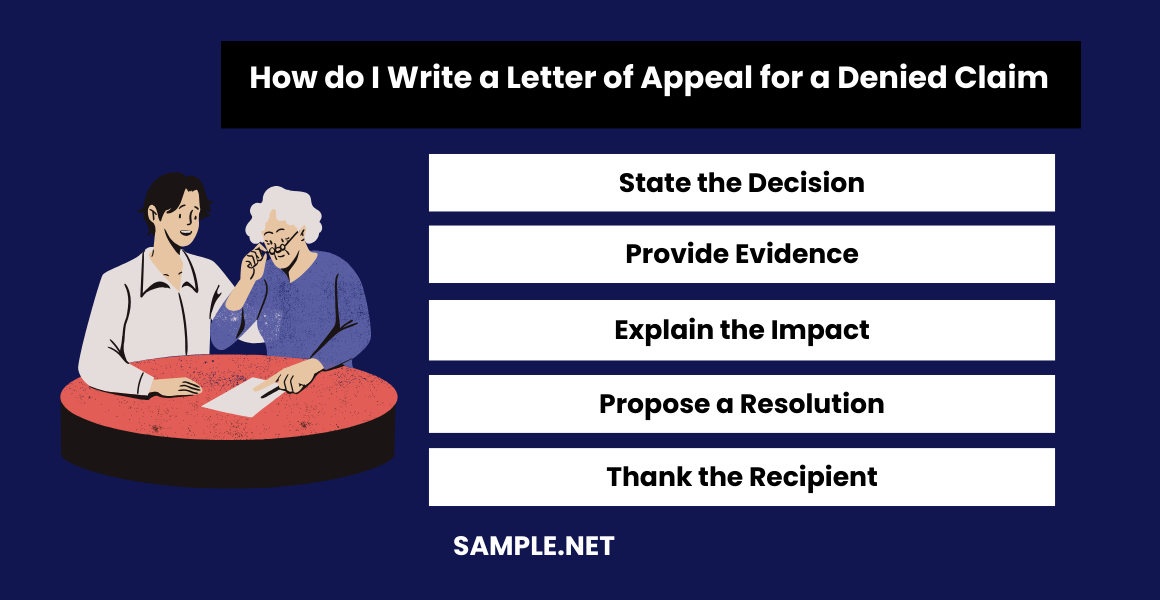
Writing a letter of appeal for a denied claim involves clearly explaining your situation and providing evidence. Follow these steps:
- State the Decision: Clearly mention the denied claim and your intent to appeal.
- Provide Evidence: Include relevant documents that support your appeal.
- Explain the Impact: Describe how the denial affects you.
- Propose a Resolution: Suggest what you believe would be a fair resolution.
- Thank the Recipient: Show gratitude for their time and reconsideration.
Use the clarity and detail found in an Explanatory Letter to ensure your appeal is comprehensive and understandable.
How do you argue an appeal?
Arguing an appeal effectively requires a structured and clear approach. Follow these steps to make a compelling argument:
- Understand the Decision: Fully comprehend the reasons behind the original decision.
- Gather Evidence: Collect all relevant documents and evidence that support your case.
- Present a Logical Argument: Structure your argument logically, addressing each point of the original decision.
- Remain Professional: Maintain a respectful and professional tone throughout.
- Follow Up: Be prepared to follow up with additional information or clarification if needed. You may also see Affidavit Letter
Approach your appeal with the same structured clarity as a Board Resolution Letter to ensure all aspects of your argument are addressed.
What is a good reason for an appeal?
A good reason for an appeal includes new evidence, procedural errors, or overlooked facts. Highlighting these in your Dismissal Letter can strengthen your case and increase chances of reconsideration.
How long should a letter of appeal be?
An appeal letter should be concise, ideally one page. Clearly state your case and provide supporting evidence, similar to the brevity of a Fundraising Letter.
What is the most common appeal?
The most common appeal is the logical appeal (logos), relying on facts and evidence to persuade. This method is effective in contexts like a Recognition Letter.
What does it mean to apply for an appeal?
Applying for an appeal means formally requesting a review of a decision. It involves submitting a structured argument and supporting documents, akin to an Offer Letter process.
How likely are appeals successful?
Appeal success rates vary, typically ranging from 20-40%. Success depends on the strength of your argument and evidence, similar to an Engagement Letter persuading acceptance.
Is it hard to win an appeal?
Winning an appeal can be challenging due to the need for substantial evidence and a clear argument. It’s comparable to negotiating terms in a Rental Agreement Letter.
Are appeals usually successful?
Appeals are not usually successful; the success rate is low. However, a well-prepared case, like a strong Reference Letter, can improve your chances significantly.
Appeal letters are vital tools for requesting a review of a decision. Whether it’s an academic, professional, or personal matter, a well-crafted appeal letter can significantly impact the outcome. This guide has provided comprehensive insights, examples, and templates to help you write effective appeal letters. Remember to remain clear, concise, and respectful in your writing. Utilize the provided samples and forms to enhance your appeal’s effectiveness. By following these guidelines, you can increase your chances of a successful appeal. For further assistance, consider referring to an Authorization Letter template.
